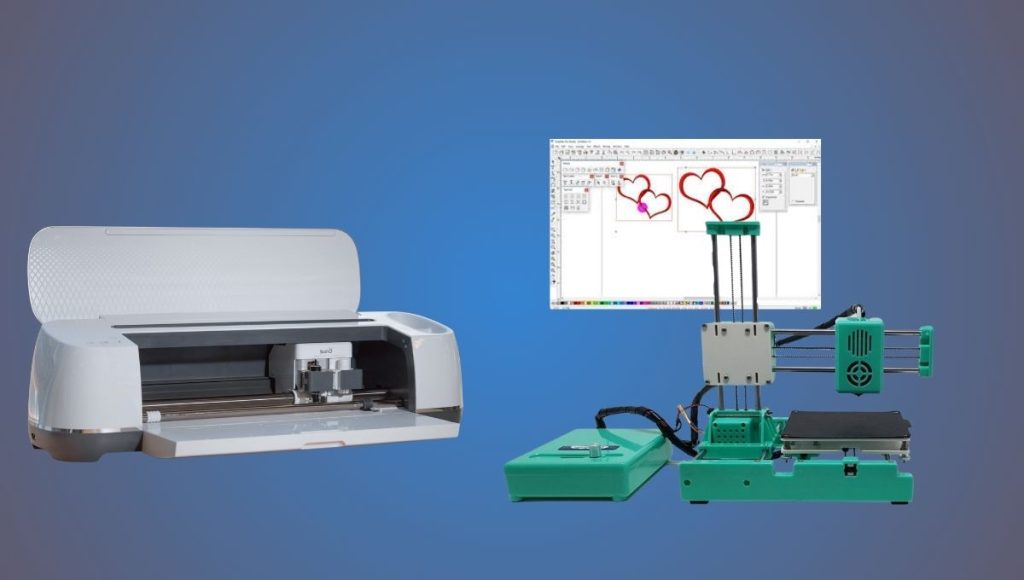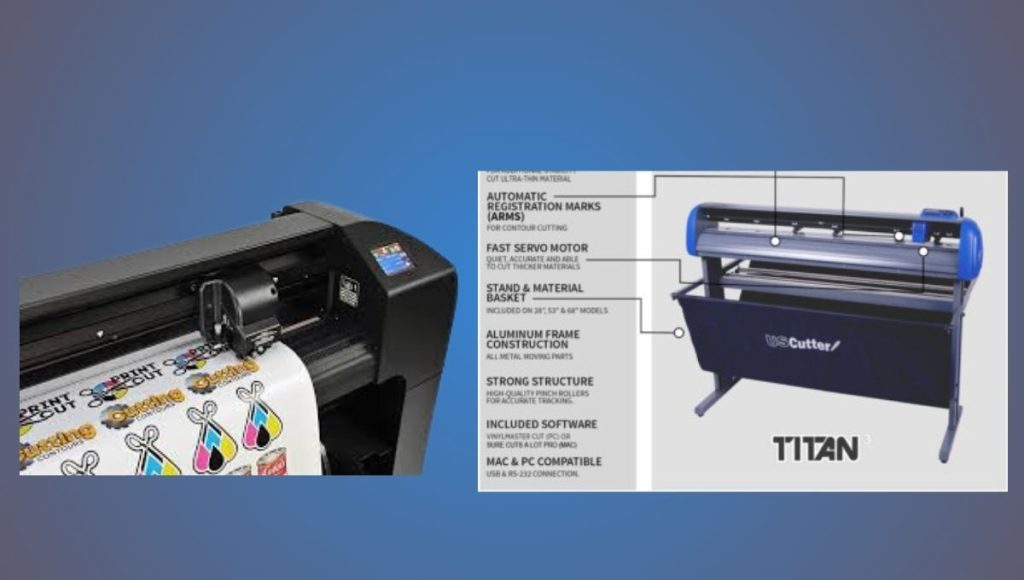Imagine designing a vinyl graphic that seems to have come from a professional—sharp, crisp, and ready to amaze. Making custom decals, personalized signs, or intricate wall art, however, the right software can move your project from amateur to wow. But wait, what about those of you on a shoestring budget? Those fancy designer programs cost big bucks, meaning they’re not in most artists’ price range.
The good news is, there’s a whole set of free vinyl cutting software that can deliver signature effects—and in most cases, rival commercial ones. And with the growing popularity of flexible tools like how to 3d print in Blender, you can marry 2D vinyl arts with 3D elements for a truly unmatched mixed-media experience, taking your creativity to new limits beyond what you ever imagined.
In this ultimate guide, we will have a close examination of the top free vinyl cutting software programs that allow you to achieve professional-quality results. You’ll also learn helpful tips on how to integrate these programs into your workflow and how to use 3D printing in Blender to push beyond the boundaries of conventional art.
Why Use Free Vinyl Cutting Software?
Accessibility and Cost-Effectiveness
Quality software does not require expensive software. You can have access to free software immediately, so you can start designing without breaking the bank. Such programs are excellent for hobbyists, small businesses, or anyone dabbling in vinyl art on a shoestring budget.
Innovation Through Community and Updates
Community and open-source projects are constantly adjusted by feedback from users. Updates, added features, and borrowed code ensure you’re always running current, effective software, often before costly commercial options.
Compatibility and Workflow Flexibility
Most of the free vinyl cutting software works with standard vector formats like SVG and DXF, and is compatible with mainstream cutting devices like Cricut, Silhouette, or Graphtec. Other software integrations—like how to 3d print in Blender—can create new design possibilities, and allow you to combine 2D and 3D concepts seamlessly.
‘Key Features to Consider When Choosing Vinyl Cutting Software
Before choosing your software, consider the following key features:
- Ease of Use: Must have a gentle learning curve for beginners, but expert controls for pros.
- Design Capabilities: Support for vector illustration, multi-layer projects, text editing, and import/export file formats.
- File Compatibility: Seamless importing/exporting to file types like SVG, DXF, PNG, and PDF.
- Community & Support: Availability of tutorials, forums, and ongoing development.
- Workflow Efficiency: Ability to prepare your design, preview cut paths, and export efficiently.
A great combination of these elements results in smooth operation, minimizing frustration and maximizing creative output.

Top Free Vinyl Cutting Software That Takes Your Projects to the Next Level
Now let’s get into the actual software that can transform the way you make, organize, and perfect your vinyl art. Each software has unique strengths, which are suited for different levels of skill and project sizes.
| Software | Skill Level | Key Features | Best For | Platform Support | Cost | Explore More |
| Precision vector drawing, layering, and large plugins | ||||||
| Inkscape | Beginner to Advanced | Precision vector drawing, layering, large plugins | Detailed designs, multi-layer decals | Windows, Mac, Linux | Free | Inkscape |
| Vectr | Beginners | Precision vector drawing, layering, and large plugins | Quick prototyping, team projects | Web, Desktop | Free | Vectr |
| LibreCAD | Intermediate | Correct technical drawings, CAD operations | Technical drawing, scaled projects | Windows, Mac, Linux | Free | LibreCAD |
| OpenSCAD | Advanced | Parametric, script-based 3D modeling | Prototyping, complex 3D models | Windows, Mac, Linux | Free | OpenSCAD |
| Blender | Expert | Cloud-based collaboration tools, simple UI | Merging 3D prints into vinyl projects | Windows, Mac, Linux | Free | Blender |
Detailed Breakdown: How Each Tool Transforms Your Workflow
Inkscape: The Key to Accurate Designs
Why it’s so valuable:
Inkscape eliminates the cost of vector graphics software.
Its robust functionality fits all levels of projects, from simple stickers to intricate layer decal jobs.
Tips for maximizing your design process:
- Become proficient at manipulating the node tool to produce lovely, smooth curves.
- Use layers to set items apart and make easy edits.
- Use several extensions to add functionality, such as mirroring or fill patterns.
- Prepare your artwork by tidying up the nodes and closing off the paths for clean cuts.
Real-world insight:
Most successful vinyl designers start with Inkscape as the beginning point of their initial design process, then import the SVG files directly into their cutting software. To learn how to 3d print in Blender, you can design 3D decorations or personalized charms in Blender, then insert those models into your vinyl project for that extra depth that turns a simple decal into a real showstopper.
Vectr: Work and Design Together
Why it’s great for beginners:
Vects has a simple, cloud-based installation that accelerates project iteration. Its live editing makes it possible for teams or solo craftsmen to view changes in real-time, reducing guesswork.
Best practices:
- Use it for brainstorming quick sketches before cleaner vector tracing.
- Share your work easily with clients or team members for immediate feedback.
- Export in SVG with minimal inconvenience, ready for your vinyl cutter.
Practical tip:
You can design a simple logo or text in Vectr, then switch to Inkscape for well-tuned modifications or detailed layering, streamlining your entire workflow effectively.
LibreCAD: Precision for Technical and Scaled Projects
When to use LibreCAD:
If your project involves precise measurement or technical accuracy—like cutting intricate stencils or scaled models of buildings—LibreCAD is the way to go.
Maximizing output:
- Use its precise dimensioning feature to create detailed drawings.
- Export drawings as DXF or SVG for compatibility with software on your cutting machine.
- Connect with other software like Inkscape for additional editing, especially in layered projects requiring exact spacing.
Pro tip:
Incorporate LibreCAD in your process if you’re exploring how to 3d print in Blender—for example, by creating detailed prototypes in Blender, exporting technical sketches in LibreCAD, and adjusting scaled designs before final production.
OpenSCAD: Mastering Parametric 3D Modeling
Why it stands out:
OpenSCAD isn’t a modeling tool, but rather a scripting environment, which makes it ideal for creating sophisticated, parameterized models, especially if you need to produce runs of similar models or have absolute control over dimensions.
In the context of vinyl and 3D:
Create 3D samples, custom handles, or layered plaques. Next, how to 3d print in Blender—move your OpenSCAD designs to Blender to add more details or merge with 2D elements, broadening your project scope significantly.
Workflow tip:
Use OpenSCAD to create precise models, export STL, and then bring them into Blender for refinement, texture, or preparing for 3D printing.
Blender: 3D Powerhouse of Creativity
More than a 3D modeler:
Blender is used not only for modeling; it has animation, rendering, texturing, and an in-program workflow for 3D printing. You can sculpt detailed sculptures, layered artwork, or functional decorative pieces, and then prepare those for printing.
As regards vinyl projects:
Design complex, multi-level objects—like decorative 3D topologies or custom jewelry—that add depth to your vinyl work. After modeling, export your design as STL, and then slice in software like Cura to realize your vision.
Expert tip:
Use Blender to design high-detail 3D structures or patterns, import them into your vinyl design, and incorporate them into layered stickers or three-dimensional wall decor for a multi-dimensional effect.
Integrating the Software: Creating a Smooth Workflow
To achieve professional results, integrate these tools efficiently. Here’s how:
| Step | Software & Purpose | Description |
| 1 | Vectr or Inkscape | Sketch out concepts, quick prototypes |
| 2 | Inkscape | Thicken vector curves, prepare clean files for cutting |
| 3 | LibreCAD or Inkscape | Technical drawings or detailed layout |
| 4 | Blender | Model 3D objects or backgrounds for layered projects |
| 5 | Slicing software (Cura, PrusaSlicer) | Prepare 3D models for printing |
| 6 | Vinyl cutter software | Final |
This tiered approach allows you to access each tool’s unique strengths, leading to high-quality, complex projects with efficiency.
How to 3d Print in Blender: Expand Your Creative Canvas
The best-kept secret of professional vinyl artists and hobbyists alike is how to 3D print in Blender. Have you experimented with how to 3d print in Blender alongside vinyl projects? Perhaps you’ve created a stunning layered decal with a customized 3D base or designed fine accessories to complement your wall art. We invite you to share your experiences, advice, and finished projects with our engaged community.
Collaborating with other creatives provides valuable feedback, inspiration, and enhances your skills. Platforms like Instagram, Pinterest, and specialized forums allow you to showcase your work, get inspired by others, and stay updated on the latest freeware design software.

Call to Action: Start Creating Today!
Embarking on a journey to achieve professional results doesn’t require expensive equipment. With top free vinyl cutting software and the ability to learn how to 3d print in Blender, you’re equipped to produce high-quality, innovative projects.
So why wait? Dive into your favorite design tool, sketch out your idea, and take your craft to new heights. Try combining vinyl decals with 3D components—they’re perfect for personalizing and elevating your artwork.
Subscribe to our newsletter for more tutorials, tips, and inspiration. Follow us on social media to stay connected with a thriving community of makers and artists.
Final Words: Your Creative Journey Starts Now
The landscape of creative manufacturing is rapidly evolving. Free technologies and affordable 3D printing are transforming how makers design and build. By embracing these tools, you unlock limitless creative potential.
Remember, every masterpiece begins with a single idea. Let that idea be your catalyst for your next bold project—whether it’s a sleek vinyl decal, an intricate layered art piece, or a distinctive 3D element that sets your work apart.

Leave a Reply
You must be logged in to post a comment.